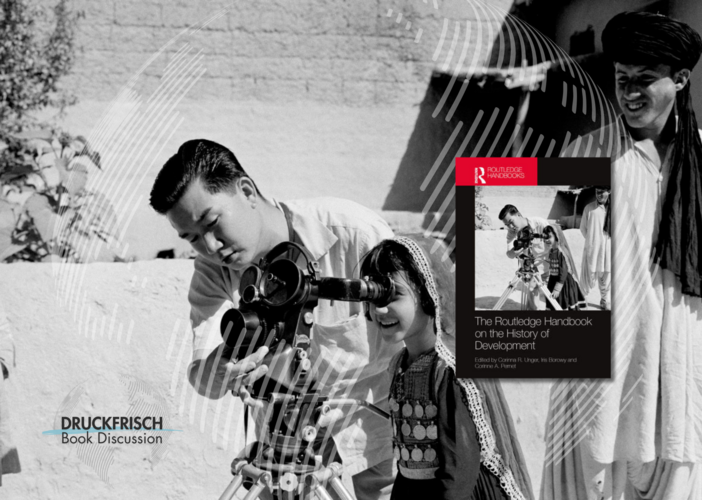Druckfrisch Book Discussion
The Routledge Handbook on the History of Development
The next edition of our Druckfrisch Book Discussion series features "The Routledge Handbook on the History of Development." This new handbook offers a comprehensive overview of development themes and actors from the twentieth century.
Our panel will explore the book's critical reassessment of historical experiences influencing modern development concepts. The handbook examines the interplay of material conditions, power structures, and policy choices across different eras and regions, highlighting the evolution of development practices under various global influences. The discussion will delve into thematic areas of the book, focusing on how governments, NGOs, corporations, and international organizations have responded to challenges in education, health, infrastructure, social conditions, and security.
With:
- Iris Borowy (Shanghai)
- Veronique Dimier (Brussels)
- Steffi Marung (Leipzig)
- Corinna R. Unger (Florence)
Moderated by Dmitri van den Bersselaar (Leipzig)
The Druckfrisch Book Discussion series is jointly organized with The European Network in Universal and Global History (ENIUGH).
Book Abstract
This bold and ambitious handbook is the first systematic overview of the history of development ideas, themes, and actors in the twentieth century. Taking stock of the field, the book reflects on blind spots, points out avenues for future research, and brings together a greater plurality of regions, actors, and approaches than other publications on the subject.
The book offers a critical reassessment of how historical experiences have shaped contemporary understandings of development, demonstrating that the seemingly self-evident concept of development has been contingent on a combination of material conditions, power structures, and policy choices at different times and in different places. Using a world history approach, the handbook highlights similarities in development challenges across time and space, and it pays attention to the meanings of ideological, cultural, and economic divides in shaping different understandings and practices of development. Taking a thematic approach, the book shows how different actors – governments, non-governmental organizations, individuals, corporations, and international organizations – have responded to concerns regarding the conditions in their own or other societies, such as the provision of education, health, or food; approaches to infrastructure development and industrialization; the adjustment of social conditions; population policies and migration; and the maintenance of stability and security.
Bringing together a range of voices from across the globe, this book will be perfect for advanced students and researchers of international development history.





























































